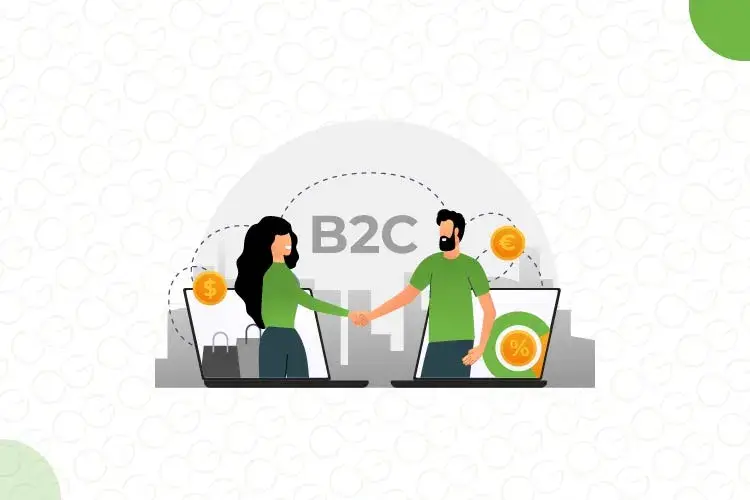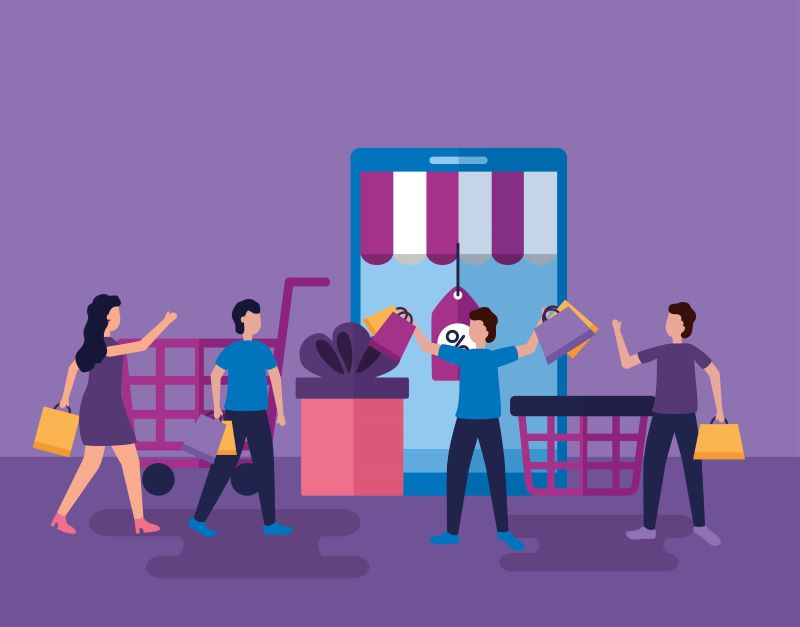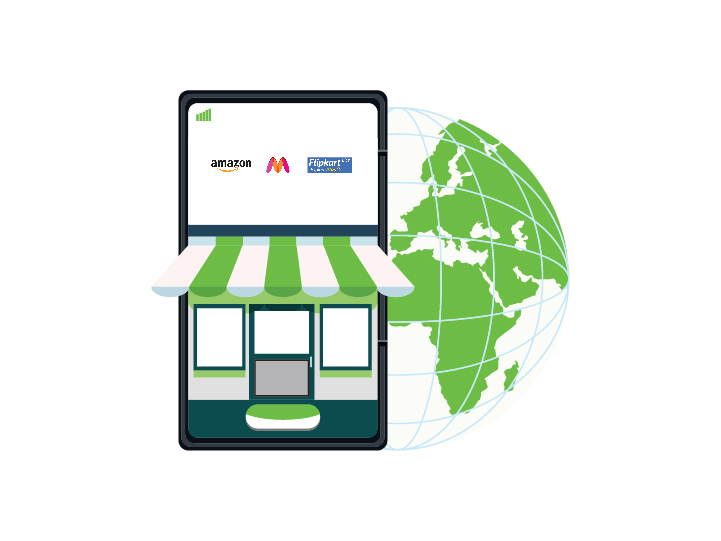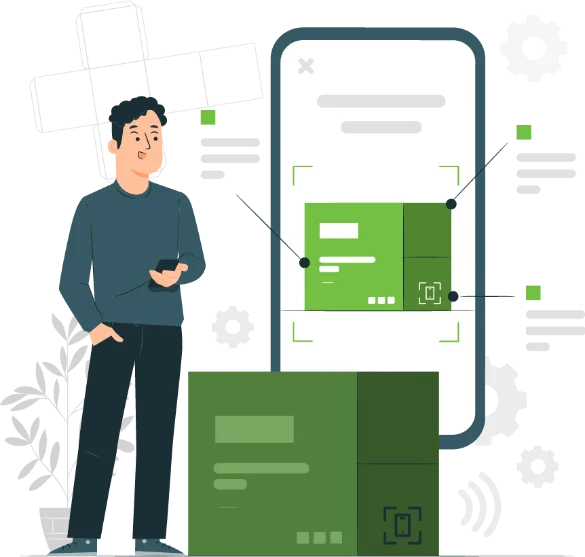Adapting to Changes in Consumer Behaviour: Driving New B2C Business Models

Introduction
Success in today's dynamic market hinges on the ability to adjust and embrace the changing methods of sales approaches. Businesses are facing a significant challenge adapting to the ever-changing landscape of consumer behavior. As consumers become more tech-savvy, empowered, and discerning, traditional B2C business models must also undergo a transformation to stay relevant and competitive. In this blog, we will explore the dynamic relationship between consumer behavior and B2C business models, delving into innovative ways of selling that align with changing expectations and preferences of consumers.
Firstcry: A Case Study
One company that has successfully adapted to changing consumer behavior is Firstcry. The success of Firstcry, a popular online and offline retailer of baby products, can be attributed to its focus on understanding consumer demands and solving problems that parents may face. It was one of the first online retailers to offer same-day delivery of baby products. FirstCry also offers a variety of other services, including in-store pickup, multiple payment options and shipping methods.
In addition to its online presence, FirstCry also has a network of physical stores, allowing the company to reach a wider audience, while also ensuring an immersive environment, where customers can engage with products physically before making a purchase.

Most Popular B2C Selling Models
To ensure success in the B2C market, businesses must focus on exploring various ways of selling their products. By diversifying their sales channels, B2C businesses can tap into different consumer segments and reach a wider audience.
Here are some key trends in consumer behavior and how B2C business models can adapt to them.
-
Walk-in Retail Stores
Traditional walk-in retail is still a major force in the B2C market, but it is facing increasing competition from online retailers. To compete, brick-and-mortar stores need to offer a unique experience that may be difficult to replicate online. This could include things like personalized service, a wide selection of products, or a comfortable shopping environment. -
Online Stores
Online shopping or e-shopping has become popular in the past decade, and it is now the preferred way to shop for many consumers. Online retailers offer several advantages over traditional brick-and-mortar stores. By investing in user-friendly websites, mobile apps, or secure payment gateways online stores can provide seamless experiences and gain a competitive edge in the digital marketplace. -
D2C (Direct-to-Consumers) Model
D2C businesses sell their products directly to consumers, bypassing traditional retailers. By eliminating intermediaries, companies can control the entire customer experience, gather valuable data, and offer personalized products and services. D2C brands leverage social media, content marketing, and influencer collaborations to build brand awareness and engage directly with consumers, fostering loyalty and driving sales. -
Omnichannel Approach
The omnichannel approach recognizes that consumers interact with businesses through multiple channels, such as physical stores, websites, mobile apps, and social media platforms. Omnichannel businesses offer a seamless shopping experience that combines online and offline channels. This could include things like in-store pickup for online orders or the ability to browse products online and then purchase them in a store. -
Rental Alternative
The concept of ownership is changing as consumers seek more sustainable and cost-effective alternatives. The rental model allows consumers to access products and services without the burden of ownership. This trend is prevalent in various industries, including fashion, electronics, and transportation. B2C businesses are promoting circular economy principles and leveraging sharing economy platforms to reach a wider consumer base. -
Subscription Model
Subscription businesses have gained significant traction in recent years. Consumers appreciate the convenience, customization, and cost savings offered by subscriptions. From streaming services to meal kits, businesses are tapping into this trend to create long-term relationships with customers. By providing a continuous stream of value, B2C companies can secure recurring revenue and foster customer loyalty. -
MLM (Multi-Level Marketing)
MLM model sells products directly to consumers through a network of independent distributors. This model is popular for businesses that sell products, difficult to find in traditional retail stores, such as health products. While controversial, MLM has attracted a significant consumer base due to the promise of flexible income and entrepreneurial opportunities. -
Social commerce:
Social commerce integrates e-commerce functionalities with social media platforms. It combines the power of social media and online shopping, allowing users to browse, discover, and purchase products or services directly within their social media feeds. B2C companies can leverage the social commerce model to increase their reach and brand exposure.
Key Trends Shaping B2C Selling Strategies
The trends in consumer behavior are constantly changing, and B2C businesses need to be prepared to adapt their models to keep up. By understanding the key trends and developing a strategy that meets the needs of their target market, businesses can position themselves for success in the future. Here’s what to keep in mind:
-
Investing in Comfort and Convenience Products
Modern consumers have the freedom to shop at any location, at any time, and in a variety of ways. They prioritize comfort and convenience when making purchasing decisions. The B2C model can also capitalize on this trend by offering a shopping experience that enhances the convenience factor. -
Express Delivery
In an era of instant gratification, consumers expect faster, more efficient delivery options. B2C or Business to Consumer model companies can adapt by investing in robust logistics infrastructure and partnering with reliable delivery services. Same-day or next-day delivery options have now become the norm for many businesses, providing a competitive edge in the market. -
Brands Prioritizing Sustainability
According to research by IBM, 77% of consumers consider sustainability and environmental responsibility to be at least “moderately important” brand values. With growing environmental awareness, they are increasingly conscious of their ecological footprint. B2C or Business to Consumer model companies can align with this trend by prioritizing sustainability in their business models.

Go the omnichannel way for your offline & online retail needs.
-
Hybrid Shopping
The line between online and offline shopping is blurring rapidly. Consumers often engage in "webrooming" or "showrooming," where they research products online before making a purchase in-store or vice versa. According to a recent study by Raydiant, there is an equal split between shoppers who prefer in-store and online shopping. Approximately 45% of consumers favor shopping in physical stores. The B2C model needs to provide a seamless, integrated shopping experience across channels. -
Vocal for Local
The "Make in India" initiative has gained significant momentum, and the Indian government is emphasizing the importance of supporting local businesses. This call for being "Vocal for Local" has resulted in a consumer preference for domestic products, enabling Indian brands to achieve self-sufficiency in the long run. B2C or the Business to Consumer model can tap into this sentiment by promoting local artisans, manufacturers, and small businesses. -
Need for Integrating Wellness Features into Products
As health and wellness gain prominence in consumers' lives, B2C or Business to Consumer model companies can adapt by incorporating wellness features into their offerings. This could involve developing products that promote physical well-being, mental health, or sustainable living.

How B2C Companies Can Stay Relevant to Changing Customer Expectations
In the past, consumers had limited options, with physical stores being the primary avenue for making purchases. However, with the rise of e-commerce and digital transformation, consumer expectations have undergone a significant shift. B2C or Business to Consumer models need to adapt to these changing expectations to stay relevant and competitive. Among several ways, one definitive and time-tested way is to offer a variety of channels through which consumers can shop. This includes having a physical store, an online store, mobile app, and other platforms. By offering your products on multiple channels, businesses can reach a wider audience and provide a more convenient, fulfilling shopping experience.

Stay ahead of the retail curve with India's leading omni retail suite
Another way is to focus on personalization. This means understanding the needs and wants of individual consumers and tailoring the shopping experience according to those needs.
Finally, technology can play a vital role in providing seamless customer experience across all your channels. Technology can be used to improve the efficiency of operations, provide better customer service, and create a more personalized shopping experience.

Here are some successful B2C business model examples that have leveraged technology extensively to meet ever increasing and demanding consumer expectation and maximized their ROI:
Amazon:
Amazon is one of the most successful B2C business models in the world. It has adapted to changing consumer expectations by adopting technology to offer a wide range of products in various channels at competitive prices and ensuring fast shipping. Extensive use of technology helps Amazon to use data to personalize its marketing and sales efforts, which helps the company target the right products and services to the right customers.
Flipkart:
Flipkart is a large e-commerce platform in India. The company's efficient delivery is supported by Ekart, its in-house logistics division. Flipkart has expanded its business to various industries, including travel, insurance, and financial services. It has been a pioneer in introducing innovative services like cash-on-delivery (COD) and hassle-free refunds. It has made this all possible due to substantial investments in technology, leveraging data analytics and machine learning (ML) to improve its offerings.
Tata Group:
The Tata Group is a huge Indian conglomerate uses retail technologies extensively across various industry sectors, including consumer goods - Tata Neu, Tata Cliq, BigBasket to name a few. All these platforms use technology to personalize communications, speed up the order fulfillment and delivery, manage huge orders and inventory, provide seamless checkout experience, significantly reduce the churn rate and save huge operating costs.
These are just a few examples of how B2C business models are adapted to customer needs and using data to personalize their marketing and sales efforts and manage to stay ahead of the curve and succeed in today's competitive B2C market.

Changing dynamics of technology in B2C business models
In today's rapidly evolving business landscape, staying ahead of the competition requires businesses to adapt to changing consumer behavior. With the advent of technology, consumer preferences have shifted, and it has become imperative for businesses in the Business-to-Consumer (B2C) market to leverage technological advancements to meet the evolving needs and expectations of their customers. So let us explore the impact of technology on three key areas that affect B2C markets: Point of Sale (POS), Enterprise Resource Planning (ERP), and Warehouse Management Systems (WMS), and how they can be harnessed to cater to customer preferences.
Here are a few ways that businesses can leverage technology to adapt to changing consumer behavior:
Point Of Sales (POS) Technology:
Point-of-sale (POS), also referred to as the point of purchase, is the location where consumers finalize their purchases, make payments, and complete transactions. Traditionally, Point of Sale (POS) systems were primarily used for basic transactional purposes. However, with the advancements in technology, modern POS systems have transformed into powerful tools that offer much more than just processing payments. The best POS software handles purchase transactions and encompasses both hardware and software components. For instance, it organizes items by department, tracks sales, and calculates taxes on receipts.

Streamline retail processes with Ginesys inventory management & POS solutions.
Some advanced characteristics that POS systems have to offer:
-
Inventory Management: A modern POS system can notify you when your stock is running low, enabling you to quickly place a purchase order and ensure you never run out of your best-selling items.
-
Real-Time Reporting at the Point of Sale: By generating real-time reports with just a few clicks, your POS system can help you monitor costs and identify any instances of shrinkage. These reports also track key performance indicators (KPIs), indicating the progress your company is making toward its objectives.
-
Integration Capabilities: Check for compatibility with your accounting software, online ordering system, CRM, and other business-related programs. When third-party apps are integrated, data is automatically exchanged between these programs, saving you the time and effort of manually entering data or fixing data entry errors.
Enterprise Resource Planning (ERP) Technology:
Enterprise Resource Planning systems play a crucial role in managing various business processes such as inventory, supply chain, customer relationship management, and more. Thus, enterprise resource planning (ERP) software is a suite of integrated applications that helps businesses manage their operations. ERP software can help businesses to improve efficiency, reduce costs, and make better decisions.
With changing consumer behavior, businesses need agile and flexible ERP systems that can adapt to shifting consumer demands. Advanced ERP technology allows businesses to streamline operations, improve efficiency, and gain valuable insights into customer behavior.
In recent years, ERP software has become more cloud-based, which makes it easier for businesses to access and use data. This can be a major advantage for businesses that are looking to adapt to changing consumer behavior. No infrastructure to manage, fewer security risks and lower cost of ownership along with ease of access from anywhere anytime.
Warehouse Management System (WMS) Technology:
An efficient warehouse management system (WMS) is essential for businesses to meet the growing demands of consumers. Traditionally warehouse operations often involved manual processes that are time-consuming and prone to errors. With the emergence of advanced Warehouse Management Systems (WMS) to meet the changing consumer preferences, businesses can now optimize their supply chain, improve order fulfillment, and provide better customer service more efficiently. WMS technology enables businesses to automate various tasks, including inventory tracking, order processing, and shipping.
By leveraging WMS technology, businesses can ensure faster order fulfillment, accurate inventory management, and timely delivery, ultimately meeting customer expectations for quick and efficient service.
In recent years, WMS software has become more mobile, which allows businesses to track inventory and shipments in real time. This can be a major advantage for businesses that are looking to adapt to changing consumer behavior.
The changes in POS, ERP, and WMS technologies are all aimed at meeting the evolving preferences of today's consumers. By embracing technology, businesses can deliver on these expectations and gain a competitive edge in the B2C market.

Stay ahead of the curve with India's best omniretail platform: Ginesys
How Ginesys can help:
In 2022, 20% of all retail sales were made online, up from 17% in 2021 and this number is expected to rise to 23% by 2025. In the dynamic world of B2C business models, staying ahead of the competition requires robust and innovative solutions.
Ginesys, India's leading omniretail suite, offers a comprehensive retail software for multichannel retail. With its state-of-the-art technology and advanced features, Ginesys enables businesses to adapt to changing consumer behavior and effectively manage their operations.

Experience the future of omnichannel retail with Ginesys.
- Ginesys provides a seamless and integrated platform that encompasses various aspects of retail management, including solutions such as Advanced ERP technology, inventory management, point-of-sale (POS) systems for both Cloud or Desktop, and other e-commerce capabilities. By leveraging Ginesys, B2C companies can streamline their processes, enhance customer experiences, and drive business growth.
- Ginesys offers several solutions that align with changing consumer behavior trends. For instance, it enables businesses to implement an omnichannel strategy, ensuring a consistent shopping experience across different channels. Whether customers choose to shop in-store or online, Ginesys ensures a smooth and seamless journey.
- Ginesys also supports data-driven personalization by providing businesses with powerful analytics and insights. By analyzing customer data and behavior, businesses can personalize their offerings, recommend relevant products, and create targeted marketing campaigns.
Know more about the retail & Ecommerce solutions that Ginesys has to offer for your B2C businesses.
Get in touch with us today!
